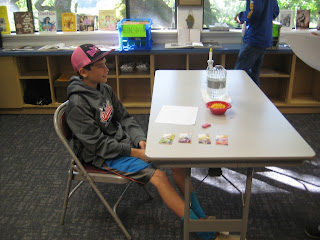Below is an excerpt from a post I wrote on this blog back in 2014. It bears repeating because it shares better than anything I could write again today how important Yom Ha'Shoah - Holocaust Memorial Day (which we began observing last night) - is for me personally, and why I feel it's so important for me to share the background of this blackest era of Jewish history. There are very few survivors left to tell their stories, and now it is up to my generation and those to follow to keep their stories alive.
"Today is Yom Ha'Shoah, a very somber day in Israel and for Jews all
over the world. It has a very special meaning for me, since my father
was a Holocaust survivor from Poland. In fact, I was named after my
father's mother, Czarna (Charne in Yiddish), and his sister, Ruth, both
of whom perished in Treblinka sometime in 1944, along with other members
of my family. My brother was named after my father's brother, Artur,
who also perished during the war.
My father had been
sent by his family to Brussels, Belgium in 1937, at the age of 15, after
he was stabbed in the thigh by a gang of Polish youths on his way home
from a Hashomer Ha'tzair (a socialist-zionist youth organization) meeting in Warsaw (the head of his ken - his
meeting place - was Mordechai Anilewicz, who would become the leader of
the Warsaw Ghetto Uprising in April, 1943). My grandfather realized that
there would be no safe haven anywhere in Poland.
Sadly,
the rest of the family couldn't get out before Poland was attacked on
September 1, 1939. In fact, my grandmother was visiting my father when
she heard the news, and decided to take the train back to Warsaw
immediately, to be with her two younger children (my uncle, Artur, was
only 15 at the time, and my aunt, Ruth, was only 9). The only member of
the family to survive the war, aside from my father, was my grandfather.
He and Artur eventually escaped from the Warsaw Ghetto through the
sewer system, just prior to the uprising. Artur quickly joined a Polish
partisan group in the forest outside of Warsaw; after the war, my
father learned that he had been shot by the Polish partisans when they found
out he was Jewish.
My father eventually made his way to
the U.S. near the end of 1944, thanks to an uncle living in New Jersey
who sent him money via the Red Cross during the war, surviving a trek
alone through Belgium, France, Spain, and Cuba, always one step ahead of
being arrested. He joined the U.S. army to obtain immediate
citizenship, and when the war ended, was assigned as a civilian to
translate at the Nuremberg trials in Germany (my father spoke 7
languages fluently). Once in Europe, he spent many weekends searching
for his father, and finally found him, still living in Warsaw with
family friends. Within a year, my grandfather was able to join my father
in New York.
My father passed away almost three years
ago, in June, 2011. He wrote his life story back in the '90's for the
sake of his children and grandchildren, and I re-read parts of it every
Yom Ha'Shoah."
Yesterday, we observed Yom Ha'Shoah in
our Edot classroom. Using a timeline I had put together some years ago, we discussed how such a seemingly "cultured and civilized" country as Germany could have devolved so quickly into a dictatorship led by fanatic nationalists. We discussed how important it is for people to have a sense of dignity and pride about themselves, and if this is taken away, how quickly they can learn to hate. I then shared an age-appropriate presentation I prepared about 10 years ago, taking video segments from the "Heritage:
Civilization and the Jews" dvd-rom program to share the history and
personal stories from that black era. Following the presentation,we joined the rest of the
school in the Sanctuary for a very moving Yom Ha'Shoah assembly led by Rabbi LeVine and Revital, our Music Director. Seven candles - six for the 6 million Jews who
perished, and one representing non-Jews who were also murdered by the
Nazis had been lit and were standing on the altar table.
ZICHRONAM LEE'V'RACHA - MAY THEIR MEMORIES BE A BLESSING
















